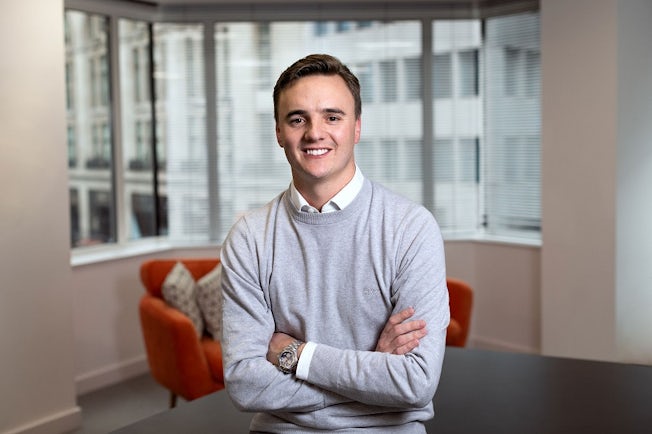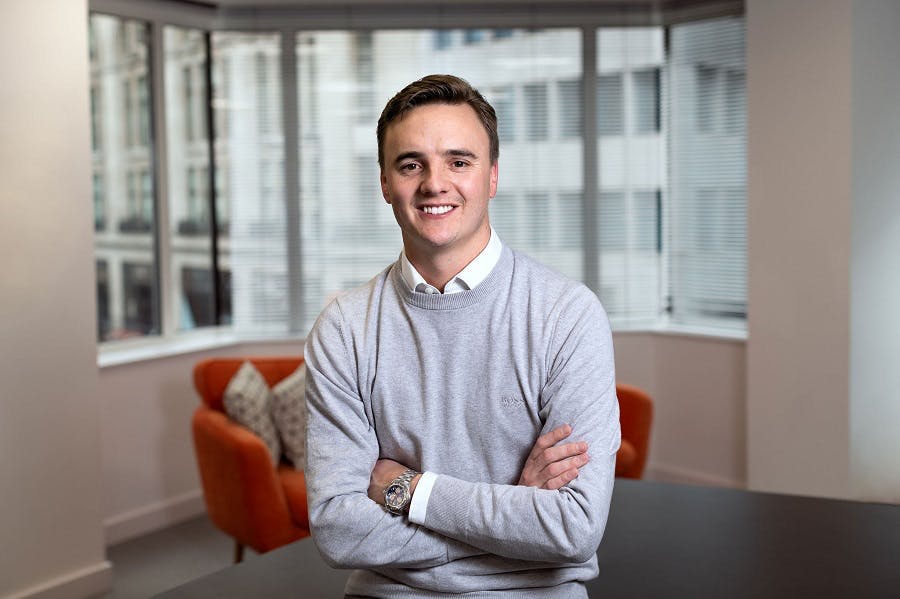Today’s ‘Day in the Life’ features James Smith, the managing director of media agency The Kite Factory. James discusses The Kite Factory’s growing focus on mid-funnel measurement, how it has helped clients navigate the past 18 months, and what the future holds for marketers.

Please describe your job: What do you do?
I’m the Managing Director at The Kite Factory so I oversee our wonderful senior leadership team. We work closely to make sure the business delivers our promises to our team, our clients, and our partners while driving the profitable revenue required to invest in developing new services, products, and acquisitions.
Talk us through a typical day…
My day-to-day work varies which I love, but I primarily manage the agency from a business and financial standpoint more so than media. I consult our teams to ensure clients see the growth we promise and make sure everything is on track and my team have everything they need. This has been increasingly important as we continue to work from home!
How do you maintain an effective work/life balance?
I’m a big believer in shutting my home office door of an evening to keep that boundary between work and home, but it has been a challenge to maintain a work/ life balance.
As an agency we’ve really tried to keep the distinction between the two while maintaining our agency culture. We’re a close team and together (virtually) we’ve done walking challenges, yoga and meditation classes, Thursday art club and of course TKF Fantasy Football League. We’re also very conscious of ensuring everyone finishes work on time and is able to enjoy full evenings and weekends.
How has strategy changed at your company in the past 18 months?
Like most companies, we were forced to adapt quickly to the changes brought by the pandemic, though our overall strategy didn’t change.
We worked closely with our clients to adapt campaigns and advice on media spend throughout the pandemic and became more fluid to overcome the sudden changes to the media landscape.
When the pandemic hit, we wanted to ensure that we balanced both our clients’ needs and our own. We’ve created a huge number of media updates and thought pieces throughout the last year, this has kept our clients abreast of both the continually changing media landscape and the opportunities they might seek to exploit to deliver maximum return on investment. We’ve also invested in creating new products and services for our clients: our ‘Framework for Recovery’ has been used by several clients to understand how best they should invest their time and budget when they’re able to do so, ensuring performance is measurable throughout the funnel.
On the back of this we’ve also worked with our brilliant data and analytics team to develop ‘mid-funnel’ measurement. We’ve been increasingly asked if there’s a measurement solution that can determine the effect of higher funnel activities on performance channels such as search. Marketing Mix Modelling will do this, but often many months after a campaign has ended.
We used our extensive experience in both short- and long-term measurement to develop our own ‘mid-funnel’ measurement solution. We’ve successfully implemented this across clients such as Lovehoney, Flight Centre and Majestic to quickly prove the effect of offline channels like TV and OOH on online metrics such as brand search, CTR and conversions (which ultimately lead to sales), as well as offline metrics such as footfall where store visit is a KPI.
How has customer behaviour (or your clients’ customer behaviour) changed during the pandemic?
We work with such a variety of clients that I can honestly say no two have behaved the same. This means we’ve had to work closely with them to understand how best our service should fit their changing needs. Travel and leisure clients such as Flight Centre and David Lloyd have had an understandably hard time; our role as a partner is to support them using our team, tools and experience to ensure they can come back stronger when their able to spend again. One of our core values is ‘win together’, which means we’ll make the conscious decision to invest our time in clients where we see future opportunity for growth, and because of this we’ll grow ourselves and the investment will pay off.
Other clients such as our charities have been able to take advantage of great value media over the past year. Coupled with new eyeballs at home during the day, we’ve delivered significant growth. Our job now as we look to come out the other side of the pandemic is to ensure we set them up with a media strategy that continues this growth, whether that be new products, channels or communications techniques using our OESP methodology.
As an independent agency, agility is at the heart of our offering. It’s been increasingly important to ensure we can turn off media as quickly as we start it; the most practical examples of this is getting Majestic Wine from pitch to live in media in four weeks and at the other end of the scale, working with media owners to cancel David Lloyd’s January campaign as the nationwide lockdown was announced.
By working in this way, our clients know we have their best interests at heart and being channel agnostic means we’ll put their investment into channels that will work hardest to generate a return.
What do you predict for the future?
Despite the decline in media spend last year, digital will continue to grow because of rising investments, recent acquisitions and the increase in home shopping and digital engagement in lockdown. This in turn will bring around more opportunities and new perspectives on marketing.
I also think the idea of the remote office will become more customary to businesses. The past year has shown us just how driven and diligent our team regardless of the circumstance. Given that I don’t think we’ll ever return to the office full-time, I think that it’s important we look at how we’ll balance the use of our office and how best to manage teams working remotely.
Whilst we’ve all become experts at video calling, it does mean you spend hours behind your screen. We’re encouraging our team to take calls whilst taking a walk (where possible), which helps to eradicate some of that screen fatigue I’m sure we’re all feeling with the added bonus of exercising. Where we do have to be behind the PC, we’re investigating how we might use VR to replace that ‘meeting room’ feeling.
What advice would you give a marketer right now?
Right now, it’s vital for marketers to trust their agencies and remain optimistic about the future. Adaptability and agility will enable marketers to build campaigns that keep pace with the change in government restrictions. I’d also challenge your agency to think ‘beyond the brief’: how can they assist you in overcoming your business challenges? Just because you know what your agency currently delivers for you doesn’t mean that’s all they’re capable of.
We’re constantly developing new products and services to fit our clients’ ever-changing needs – whether that’s understanding their first-party data better to inform CRM or building business models that forecast future returns that are needed for budget sign-off from the CFO.







